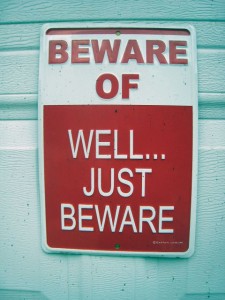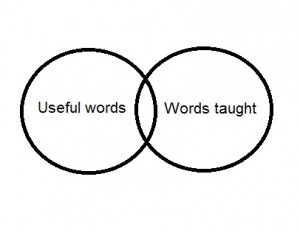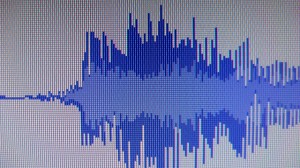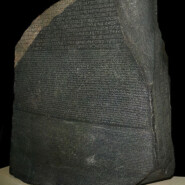
When we tell people that Language Possible courses help people enjoy learning a language as quickly as possible, they sometimes ask our opinion of Rosetta Stone. Here are a few reasons why we don’t like Rosetta Stone.
Reason #1: Their claims are just foolish oversimplifications.
When you actually think about what their commercials say, you can clearly see they are just a full of meaningless marketing phrases. For example…
“No translation.” 92.4% of Rosetta Stone exercises use the old Direct Translation method, according to the research of the University of Maryland Center for Advanced Study of Language.
“No memorization.” You mean people aren’t even supposed to remember it? What could be easier? Which brings us to…
“Easy” is an empty claim. It’s “easy” because you don’t even know when or why you don’t understand it. Therefore, you can feel like you are learning very…
“Fast” But fast compared to what? Actually understanding authentic content?
“Interactive” – Oh, you mean you can click on one of four pictures to hear vague words and phrases that are never explained? Really? Big deal. Books are interactive, too. They have instructions and you can turn to any page whenever you want.
“Start speaking from day one.” Wow! You mean you can learn to say at least one word right away? You can bet that’s something nobody else is willing to claim.
“Teaches you to think in a new language.” What does that even mean? Rosetta Stone’s programs don’t give meaningful feedback or explain anything at all. It just conditions you to feel good when you get a lucky guess and hear a bell. Cheese-ball game show antics might feel “fun” at first, but all they teach is how to play the cheese-ball game, and that gets boring very quickly. You can guess your way through Rosetta Stone programs using nothing but visual clues and a simple process of elimination. Fun? Try repetitive and tedious.
“Natural…the way you learned your native language.” Your first language took years to learn. Are they suggesting that you really only listen to the language for a year or so, then start babbling, then actually form words, then learn about how words can be written down, then go through years of understanding general grammar concepts again? Language isn’t just about learning a list of words, anyway. Why pretend to ignore everything you already know about language and start from scratch?
Reason #2: What they call their “Dynamic Immersion” method is complete hogwash.
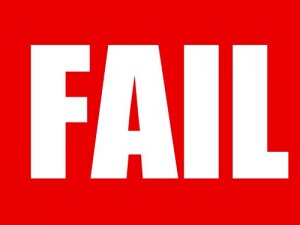
Real dynamic immersion would be seeking out lots of authentic experiences. Looking at vague, culturally irrelevant, reusable stock images doesn’t immerse you in anything but marketing collateral.
Don’t believe me? You should read what the University of Maryland Center for Advanced Study of Language said after their in-depth empirical study of Rosetta Stone for US Government use. In their article entitled Rosetta Stone Version 3 Falls Short of Manufacturer’s Claims, they claim that “Rosetta Stone is unlikely to be the solution to the U.S. Government’s language learning needs.” They also say that “Rosetta Stone’s claims about the innovativeness of the product, as well as the language learning outcomes possible after its use, are generally overstated. The software does not provide the dynamic environment required to practice using the language in context.”
Reason#3: Writing systems are basically ignored.
Information about how a language’s writing system works are not provided. Users are expected to figure that out on their own. Ignoring written language is a huge disservice to language learners – especially when learning a language that has a completely different writing system. This is not just poor-effort instructional design, it’s a deliberate omission of crucial language information.
Reason #4: It teaches the wrong words.
In this respect, they are much like other language programs in that they group categories of words together (like colors and animals) and then drill you on them, rather than teaching you the most commonly used words and phrases first so that you can rapidly access authentic materials that are actually interesting to you.
Reason #5: It treats all languages equally.
Rosetta Stone courses are all essentially the same. When your whole approach to learning languages can be boiled down to glorified flash cards, it’s no wonder they were able to stamp them out for 30-some-odd different languages. Cookie cutter production methods cause all sorts of confusion, especially when combined with the “you have to guess what we mean” approach.
One simple example of the “you have to guess what we mean” approach: People in Spanish don’t say “I’m X years old”, they say “I have X years” (Tengo X años). When left to your own devices, you might think that the word tengo means “I am”, and that años means “old”. To further the example, people in Arabic would say “My age is X years.” There are thousands of similar situations in all languages.
Reason #6: Their speech recognition technology is misleading.
At first glance, seeing waveform representations of audio may seem magical to the novice. However, they do not help your pronunciation. They are simply visual marketing tools to make people think that talking to computers will help you talk to people. To improve your accent, you first need to learn to hear the difference between the mistakes you are likely to make and authentic pronunciation. Rosetta Stone software does not teach the difference, and their speech recognition technology can’t reliably tell the difference.
Reason #7: It is way too expensive.
All that money for flash cards on a CD? At least they come in a shiny yellow box!
I could go on and on about other things like: it is too slow, it is based on observation rather than communication, it is all multiple choice, it is unclear, and it is confusing. But I think you get my point. Rosetta Stone is not a language learning company, they are a marketing company. What the world can learn from them is how to sell yellow boxes, not how to teach people a new language.
So you want to learn a new language? Click here to see why Language Possible makes the best language learning materials on the planet, or just click here to try it out for yourself!

